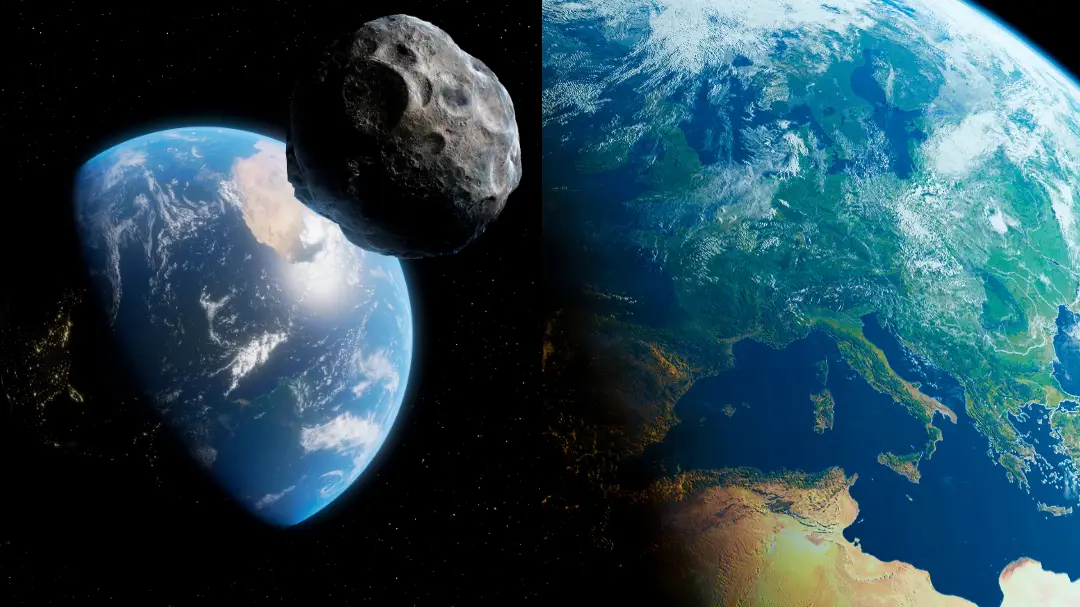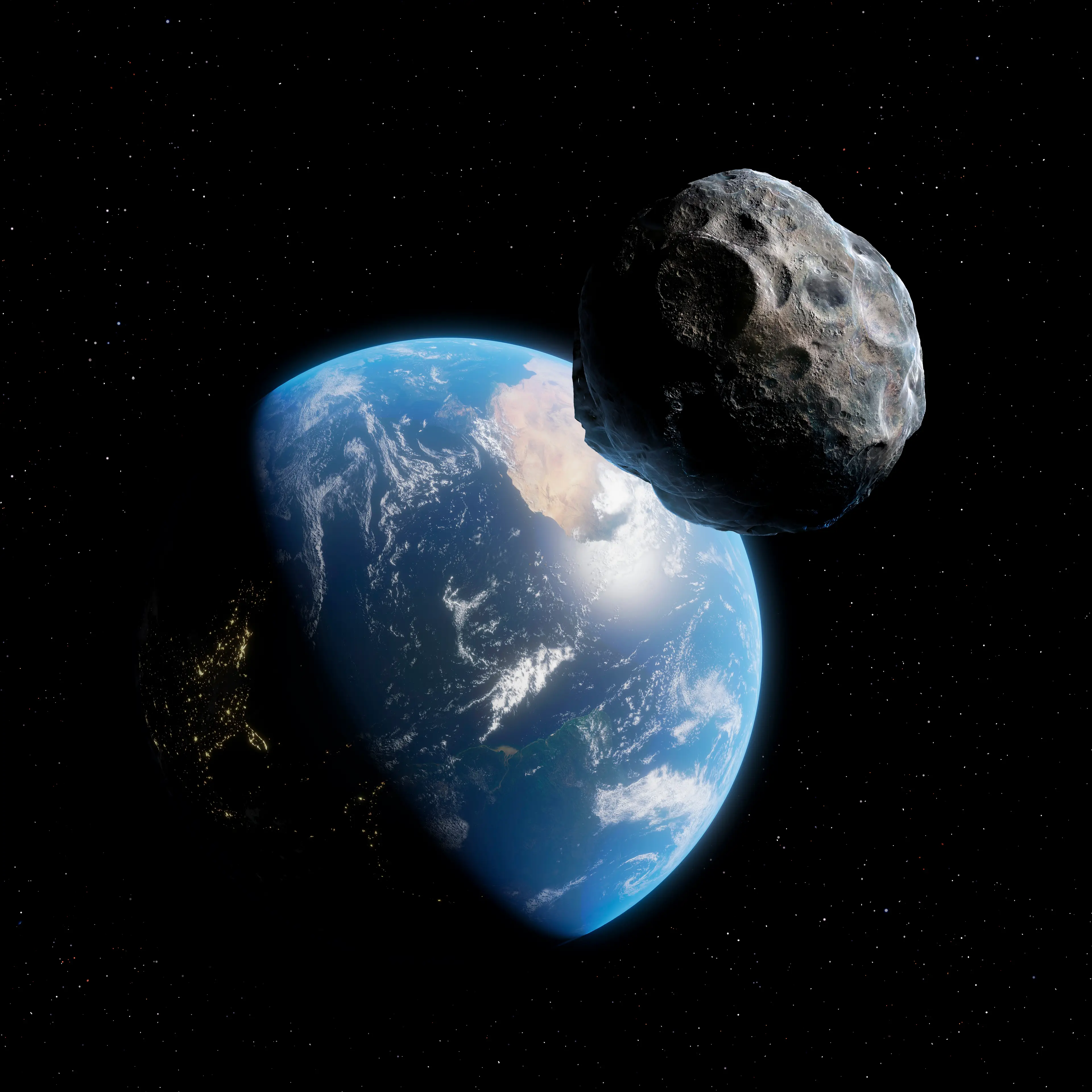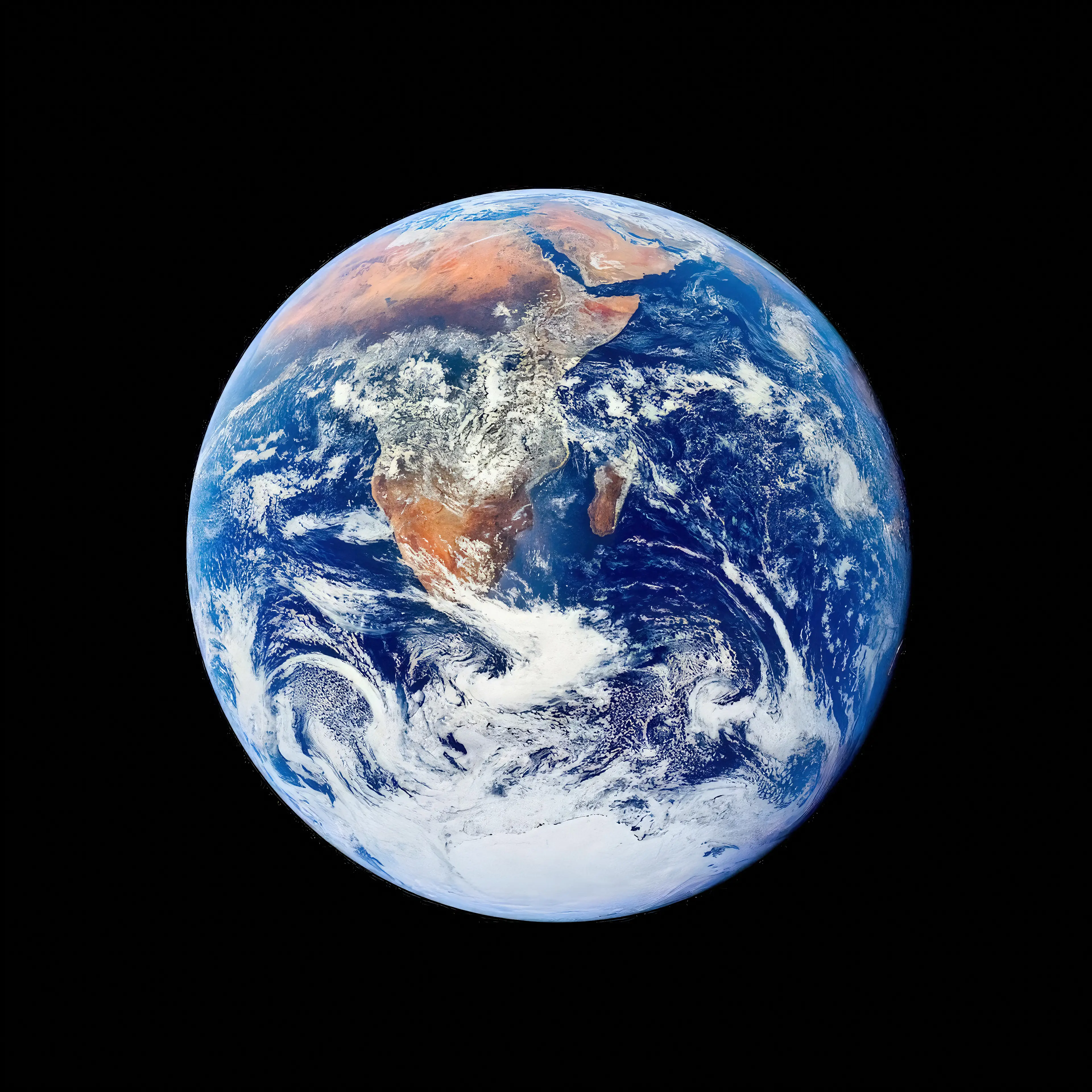
A big old piece of space rock is set to come uncomfortably close to Earth, with scientists studying exactly what chance there is of it hitting the planet we call our home.
The asteroid, called Apophis, is set to closely pass our planet on two occasions in the next 12 years; once in 2029 before returning in 2036. And by closely we mean that in space terms, with it still some 37,399 kilometres from the planet.
The rock, which is also called asteroid 99942, was first found by astronomers 20 years ago and quickly labelled one of the more dangerous threats to Earth in terms of a future collision.
Advert
Thankfully Apophis - which measures a rather massive 340 metres in diameter - will pass us by on both occasions in the next dozen years, meaning a real-life version of 1998's sci-fi classic Armageddon is off the cards for the time being.
Now the man behind the research, Western University's astronomer Paul Wiegert, has studied if there is a chance of the space rock hitting Earth in another way.
Worries existed that Apophis could collide with another asteroid, altering its course and re-directing it towards Earth.
Working with Benjamin Hyatt from University of Waterloo, the duo studied and mapped all 1.3 million known asteroids in the inner Solar System to see what chance there was of any worrisome collision.
Their findings were then published in the Planetary Science Journal.

Thankfully, Wiegert said: "We calculated the paths of all known asteroids using a detailed computer simulation of our Solar System and the possibility of such an unlikely event was evaluated.
"Fortunately, no such collisions are anticipated."
Hyatt said: "Given how closely Apophis will pass Earth, there is a possible risk that a deflection from its current trajectory may move Apophis closer to impacting us.
"Hypothetically, another asteroid colliding with Apophis could cause such a deflection, motivating us to study this scenario however unlikely it may be.”
The closest encounter with another asteroid will be in December 2026, where it will pass asteroid 4544 Xanthus by less than 10,000km.
"Though a direct collision is ruled out, the encounter is close enough that material accompanying Xanthus (if any) could strike Apophis," the paper says.

It concludes: "The likelihood of a known small Solar System body (or any material released therefrom) colliding with Apophis is extremely low. The most likely outcome of careful monitoring of the encounters between Apophis and the asteroids and comets discussed in this work is that no impact will be observed.
"The small probability of collision is however counterbalanced by disproportionately large consequences. Because of the hazard associated with even a small perturbation to this Earth-threatening asteroid, there is ample motivation to determine the risk as precisely as possible, and we encourage future efforts in that direction."
The earliest predictions once Apophis was discovered said there was a 2.7 percent chance it hit the planet in 2029.
Good news, of course, that is seemingly no longer the case. It's just the unknown asteroids we have to worry about now.
Topics: Environment, Science, Space, World News